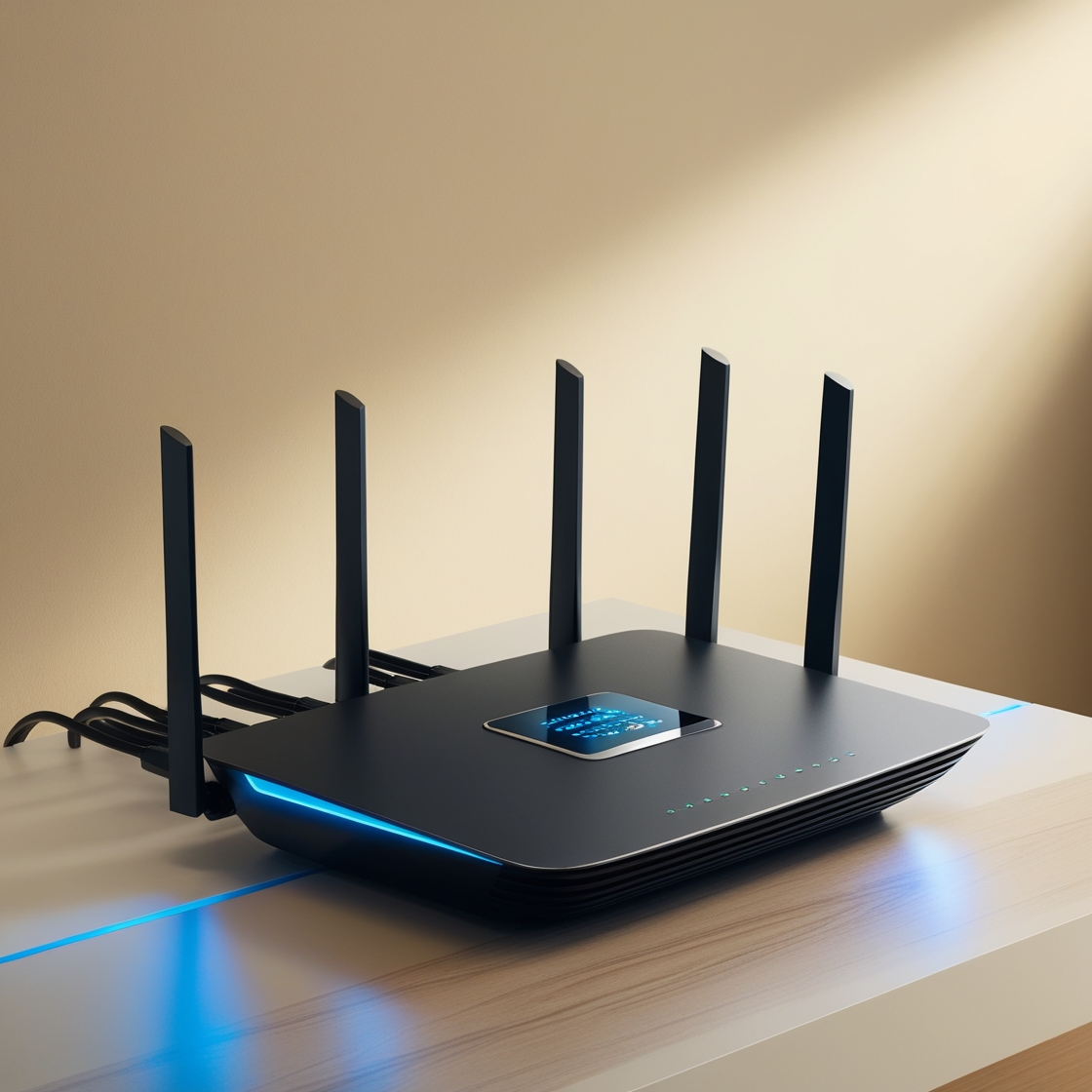In today’s digital age, protecting your data from hackers is more critical than ever. A router with a built-in firewall offers a robust line of defense against cyber threats. But what exactly is a router with firewall, and why is it so essential for safeguarding your information? Let’s dive into the world of routers, firewalls, and their combined power to keep your data secure.

Table of Contents
Understanding Routers
Basic Function of Routers
At its core, a router is a device that directs data traffic between different networks, such as your home network and the internet. Think of it as a traffic cop, ensuring data packets get to their intended destination efficiently and securely.
Types of Routers
Routers come in various forms, from simple home routers to more complex business-grade models. Some common types include wireless routers, wired routers, and core routers used in enterprise environments.
Understanding Firewalls
Basic Function of Firewalls
A firewall is a security device or software that monitors and controls incoming and outgoing network traffic based on predetermined security rules. It’s like a gatekeeper, deciding which traffic is allowed through and which should be blocked.
Types of Firewalls
Firewalls can be categorized into several types, including packet-filtering firewalls, stateful inspection firewalls, and next-generation firewalls (NGFW). Each type offers varying levels of protection and features.
Combining Routers with Firewalls
Benefits of Integrated Security
When routers and firewalls are combined, they provide a seamless and comprehensive security solution. This integration ensures that data is not only directed correctly but also thoroughly inspected for threats.
How They Work Together
A router with a built-in firewall inspects data packets at the network perimeter, blocking malicious traffic before it can enter the internal network. This dual functionality enhances overall security and simplifies network management.
Key Features of Router with Firewalls
Intrusion Detection and Prevention
These devices often come with Intrusion Detection Systems (IDS) and Intrusion Prevention Systems (IPS) that actively monitor and block suspicious activities.
VPN Support
Many routers with firewalls support Virtual Private Network (VPN) connections, allowing secure remote access to your network.
Content Filtering
Content filtering capabilities help block access to inappropriate or harmful websites, ensuring a safer browsing experience.
Advanced Threat Protection
Advanced features like malware detection and protection against Denial of Service (DoS) attacks are also common.
Why You Need a Router with Firewall
Protecting Personal Information
A router with a firewall protects your personal data, such as passwords, financial information, and private communications, from cybercriminals.
Safeguarding Business Data
For businesses, these devices are crucial for protecting sensitive information, maintaining client confidentiality, and complying with data protection regulations.
Preventing Unauthorized Access
They help prevent unauthorized access to your network, ensuring that only trusted devices and users can connect.
Setting Up a Router with Firewall
Choosing the Right Device
Select a device that fits your needs, considering factors like the number of users, required features, and budget.
Basic Setup Steps
Setting up your router with a firewall typically involves connecting it to your modem, configuring network settings, and enabling the firewall features.
Configuring Security Settings
Adjust the security settings to match your needs, including setting up strong passwords, enabling encryption, and configuring access controls.
Best Practices for Using a Router with Firewall
Regular Software Updates
Keep your device’s firmware up to date to protect against the latest threats.
Strong Passwords and Authentication
Use strong, unique passwords and consider enabling two-factor authentication for added security.
Monitoring Network Activity
Regularly check your network for unusual activity and respond promptly to any potential threats.
Backing Up Configuration
Regularly back up your router’s configuration settings to ensure you can quickly restore them if needed.
Common Challenges and Solutions
Dealing with False Positives
Fine-tune your firewall settings to minimize false positives, which can block legitimate traffic.
Managing Network Performance
Ensure your router’s security features don’t overly impact network performance by balancing security with speed.
Troubleshooting Connectivity Issues
If you encounter connectivity issues, check your router’s settings, reboot the device, and ensure all cables are properly connected.
Top Router with Firewall Recommendations
Best for Home Use
For home use, consider devices like the Netgear Nighthawk series, known for its robust security features and ease of use.
Best for Small Businesses
Small businesses might opt for the Cisco RV series, which offers advanced security features and scalability.
Best for Large Enterprises
For large enterprises, solutions like the Fortinet FortiGate series provide high-performance security and extensive management features.
Cost Considerations
Budget Options
Affordable options like the TP-Link Archer series offer basic security features at a lower cost.
Mid-Range Options
Mid-range devices, such as the Asus RT-AX88U, balance cost and advanced security features.
Premium Options
High-end models like the Ubiquiti UniFi Security Gateway provide top-tier security and performance but come at a higher price.
Future of Router and Firewall Technology
Emerging Trends
Future trends include the integration of artificial intelligence for better threat detection and more automated security management.
Innovations to Watch
Innovations like quantum encryption and enhanced IoT security features are on the horizon, promising even stronger protection.
Conclusion
In an era where cyber threats are constantly evolving, a router with a built-in firewall is an indispensable tool for protecting your data. Whether for personal use or business, these devices provide a robust security solution that combines the best of both worlds: efficient data routing and comprehensive threat protection. Invest in a quality router with a firewall today and enjoy peace of mind knowing your data is safe.
FAQs
What is the difference between a router and a firewall?
A router directs data traffic between networks, while a firewall monitors and controls the traffic based on security rules.
Can I use a router without a firewall?
Yes, but it’s not recommended as it leaves your network more vulnerable to cyber threats.
How often should I update my router’s firmware?
Regularly check for updates and install them as soon as they’re available to ensure the latest security patches are applied.
What are the signs that my network has been compromised?
Signs include unusual network activity, slow performance, and unexpected changes to settings or passwords.
How can I enhance my network security further?
In addition to using a router with a firewall, use strong passwords, enable two-factor authentication, and regularly monitor your network for suspicious activity.




